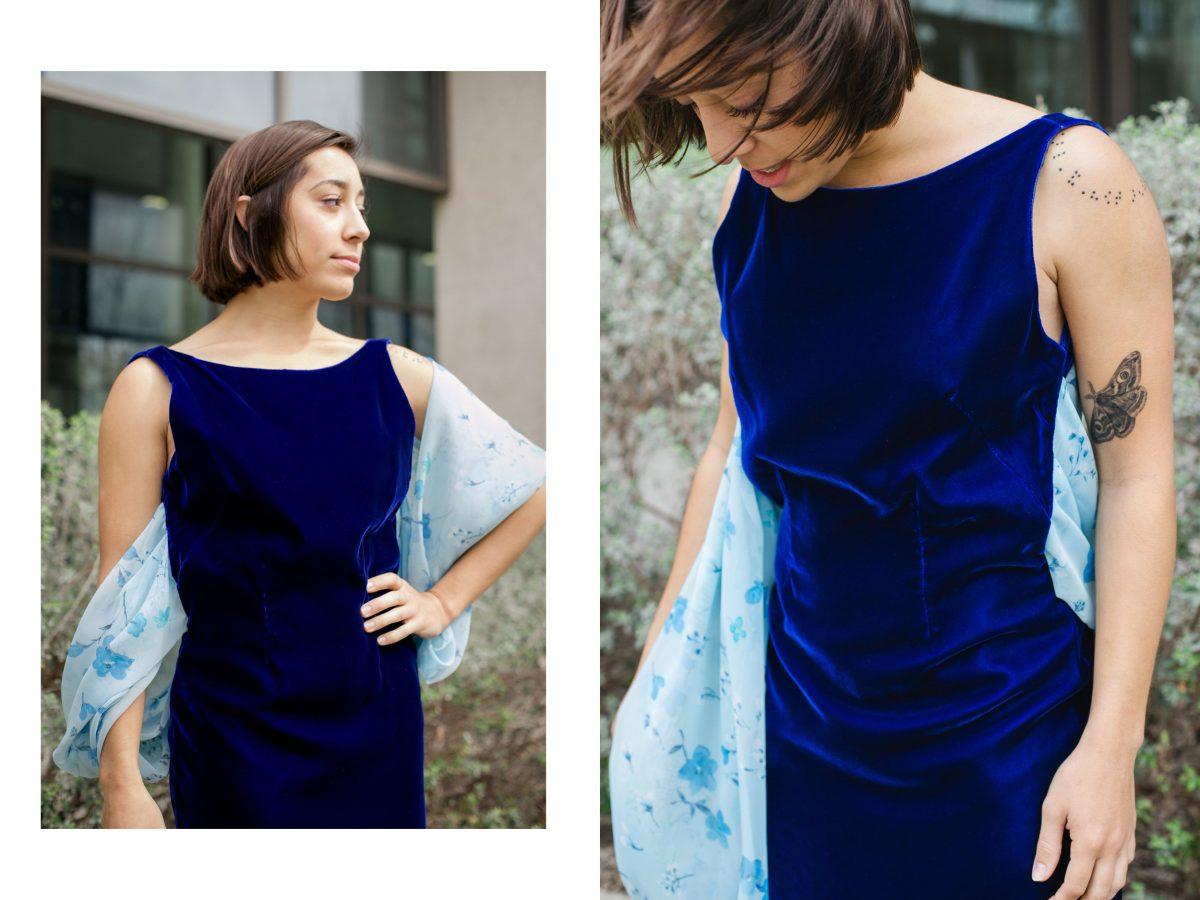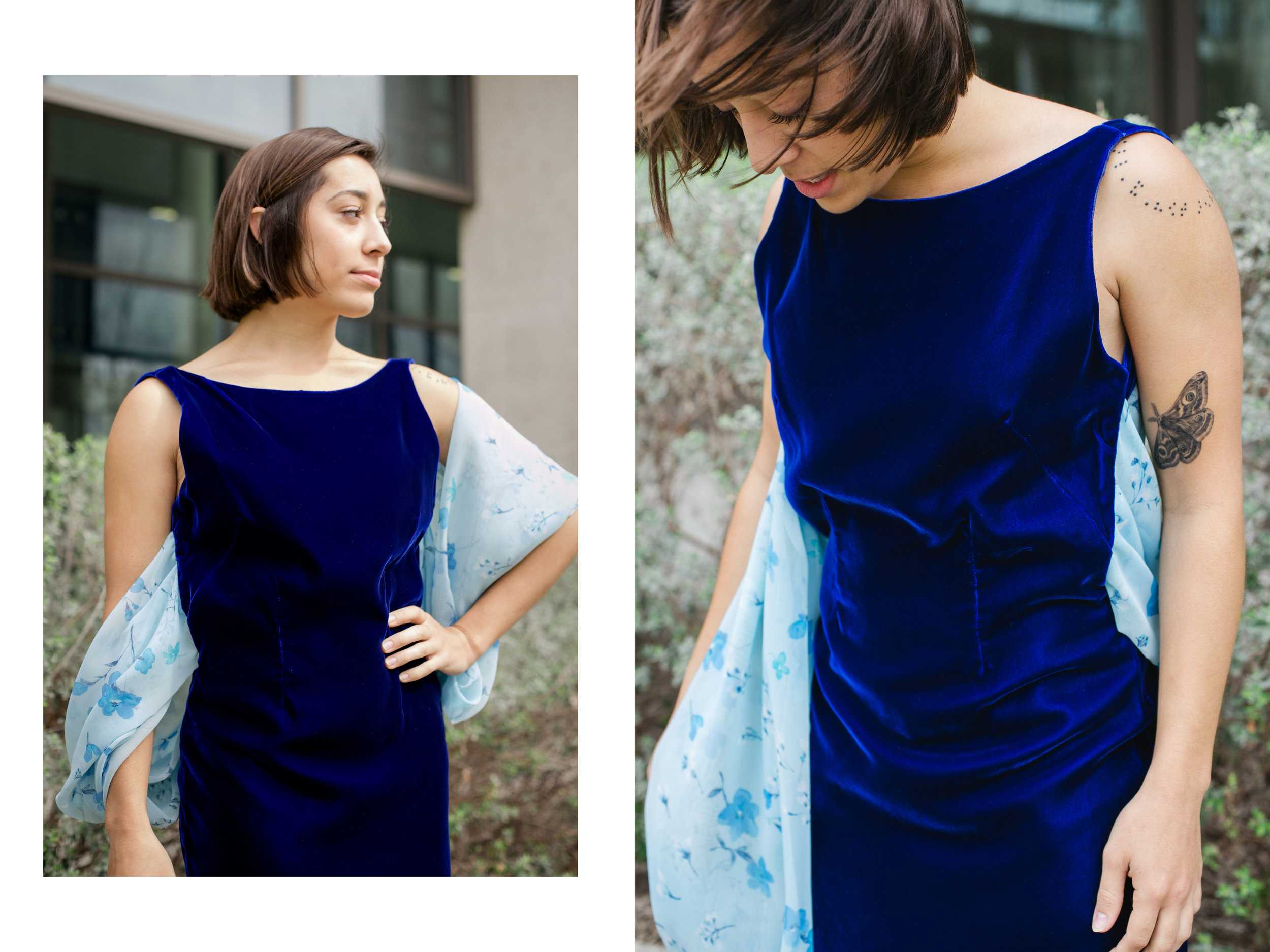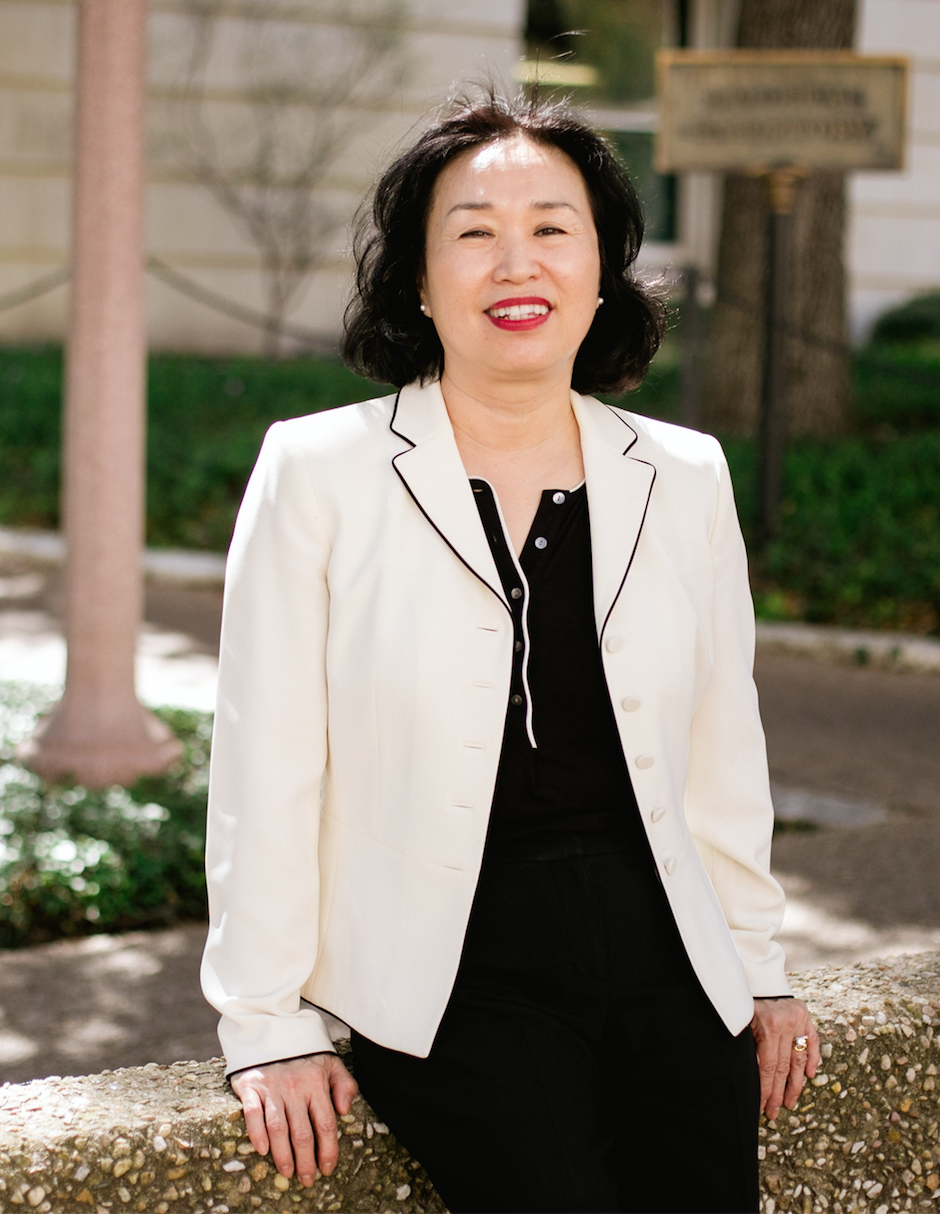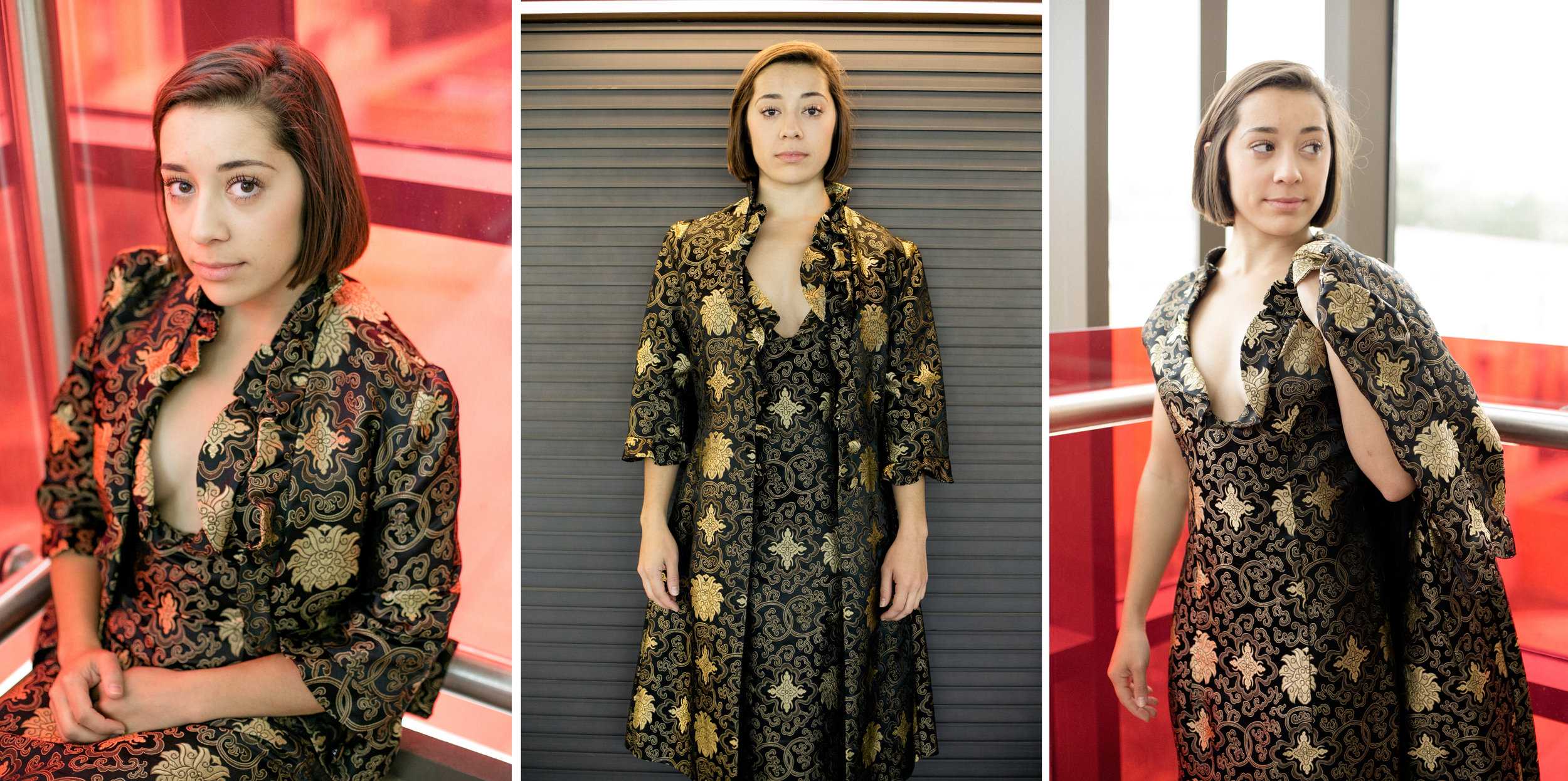Editor’s Note: This story originally appeared in Digital Issue V.
Ockhee Bego describes her designs as “nice, clean and simple lifestyle-wear for a busy woman,” but her clothing line, “Ock Hee” encompasses much more than that. The majority of her creations are professional wear or couture-like suits and gowns that strike a balance between simplicity and bold, intricate patterns.
Model Chloe Gomez wears a navy Ock Hee dress paired with a floral shawl.
Story by Ethan Elkins
Photos by Thea Robinson
Like her designs, Ockhee’s life is a balancing act. Aside from creating design lines and managing business consulting, Ockhee, now in her mid-fifties, has been teaching senior design students at the University of Texas at Austin in the Textiles and Apparel department since 2004. Even as an experienced designer of 35 years, Ockhee does not try to influence her students with her own ideas. “As a designer you have to be very open-minded in order to respect and understand everyone’s ideas,” she says.
Her goal is to assist in the development of her students’ ideas and to guide their talents. Ockhee believes that anyone has the potential to become a fashion designer if they apply themselves. “I want my students’ work to reflect who they are, not who I teach them to be,” she says. “It is important to have encouragement.”
Ockhee grew up and studied design in Seoul, South Korea. After she viewed a travelling fashion show in South Korea in her late teens, Ockhee became interested in fashion and decided to switch her major from business to fashion design. Her parents were unhappy with her decision and vowed to stop paying her tuition. This was only a minor roadblock for Ockhee. She quickly found work designing for an outsourced division of Liz Claiborne, now known as Kate Spade New York.
Professor Ockhee Bego, designer and lecturer in UT’s Department Of Textiles And Apparel.
Shortly after, in her mid-20s, Ockhee decided to leave her home for the United States. She briefly studied at the Fashion Institute of Technology in New York and then finished her studies at the Academy of Art University in San Francisco. While in school, she met her husband and got married. They moved around Europe and Asia before settling down in Austin.
Although Ockhee went on to travel the world and study under many notable people, she is not one to brag. She’s hesitant to name drop her mentor, a colleague of the late Alexander McQueen. Instead, Ockhee focuses on the present and future. She describes each relationship she develops as one of great value. “No matter how famous they are, I do not usually mention influential figures from my past because I am my own person,” Ockhee says. “After all, naming names is silly.”
Ockhee aims to make her brand as personal as possible and makes sure that every label carries her name, an idea she adopted from Coco Chanel. She also says she works to form a relationship with her clients, so they know their garment was made specifically for them.
In 2013, Ockhee created a line of Asian-inspired apparel after being approached by Mary Ann Rankin, the previous dean of the College of Natural Sciences at UT. Rankin was looking for a collection of outfits to wear while speaking at several conferences in Washington, D.C. “I like to think my garments are classy and made with the quality that allows them to last many years,” Ockhee says.
On top of designing and teaching, Ockhee is currently creating a book about pattern collections that feature her own art and the process of designing patterns. The idea came from her students, who suggested Ockhee put together a book after they praised her easy-to-understand teaching style. “The patterns I have experimented with so far have been well-received,” she says. “I intend to continue developing them and sharing my methodology.”
Gomez wears black and gold silk brocade Ock Hee two-piece ensemble.
Her plan is for the book to be exclusive to UT students, but accessible to other institutions that donate to UT’s design program. Ockhee also hopes to start a non-profit organization that educates underprivileged men and women how to sew and design to improve their lives. She would like to either travel across the country and reach out to different communities or open her own educational studio in Austin where anyone is welcome to take lessons. “If you can make a garment, you can make a living,” Okhee says.









































